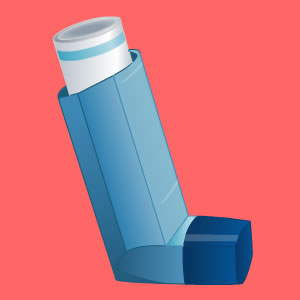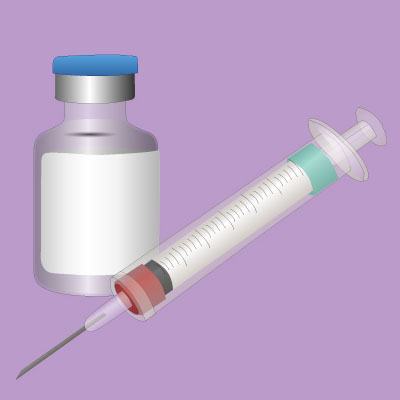
Inhaler
There is a standard method of treating an acute asthma attack. It consists of high dose reliever medication and steroid tablets.
The usual reliever drug used is Salbutamol. It is delivered by a spacer device one puff at a time up to 10 times. Salbutamol may be given by nebuliser, there is a standard dose vial that is used in the nebuliser chamber. Some people will have a home nebuliser as part of their treatment regime for difficult to control asthma.
The steroid tablets are given to reduce inflammation and calm down the symptoms of the asthma attack over a number of days. Most people will receive about 40mg of Prednisolone for 5 to 10 days after an attack.
If you have an attack and are admitted to hospital the immediate treatment is with an intravenous steroid and/or intravenous Magnesium Sulphate.
Relievers can be given by injection. An example of this is Terbutaline infusion.
What does it do?
- This is frequently used to treat the immediate symptoms of an asthma attack.
- Injection is given so it can get to work quickly and it works by relaxing the airways.
- Some patients with difficult to control asthma have infusions of relievers as part of their daily management plan. These infusions are given continuously (24 hours a day, 7 days a week) via a small cannula under the skin. This means that the level of medicine is continuous and the effects of the drug don’t wear off, resulting in the improvement of asthma symptoms. There are some risks and side effects associated with these infusions.
In a community or at home you should have your oxygen saturation levels checked. If the oxygen level is less than normal your healthcare professional will assess your need and may provide oxygen to aid recovery.










